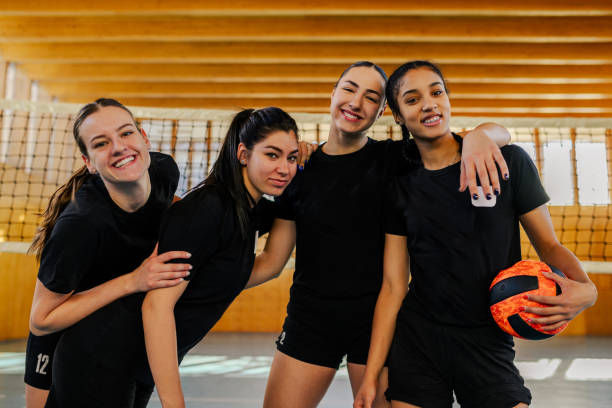How to Play Sports in College: Benefits and Challenges
Photo by Pavel Danilyuk on Pexels
Participating in college sports can be a transformative experience for students, offering numerous benefits and presenting unique challenges. For those who love sports, the idea of playing sports in college is a dream come true, combining the passion for athletics with academic pursuits, illustrating the benefits of sports. This blog will explore the various benefits and challenges of being a student-athlete, providing insights into how to balance these two important aspects of college life.

The Benefits of Playing Sports in College
Physical Benefits

Physical activity and sports are crucial for maintaining a healthy lifestyle. Engaging in sports helps improve physical fitness, increasing stamina, strength, and overall health. The regular physical activity involved in college sports can lead to significant health benefits, including increased blood flow to the brain, which helps your brain grow and function better.
Playing sports helps students develop a disciplined approach to their physical well-being, fostering habits that can last a lifetime. College athletes have access to pristine sports facilities, which further enhances their physical development and performance.
Mental and Emotional Benefits

The mental and emotional benefits of playing sports in college are profound. Participating in sports helps boost self-esteem and confidence, providing a sense of achievement and purpose. The camaraderie and sense of belonging that come from being part of a sports team can alleviate stress and combat feelings of loneliness, which are common in college.
Engaging in sports helps students manage stress effectively. The endorphins released during physical activity act as natural mood lifters, reducing anxiety and depression. Furthermore, being part of a team fosters a sense of community and school spirit, contributing to a positive college experience.
Academic Benefit

One of the key benefits of playing sports in college is the positive impact on academic performance. Student-athletes often develop effective time management skills out of necessity, balancing academic responsibilities with sports commitments. This ability to manage time efficiently translates into better academic performance.
Studies have shown that student athletes often perform better academically compared to their non-athlete peers, demonstrating the benefits of sports. Sports helps students stay disciplined and focused, qualities that are essential for academic success. Colleges and universities recognize the academic potential of student athletes, offering scholarships and financial aid to support their education, illustrating the many benefits of sports.
Social Benefits

The social benefits of participating in sports are significant. Being part of a sports team fosters teamwork and leadership skills, as athletes work towards a common goal. The relationships built with teammates can last a lifetime, providing a strong support network during and after college.
Sports provide an opportunity for holistic development, teaching valuable life skills such as communication, cooperation, and conflict resolution. The sense of community and school spirit fostered by sports participation enhances the overall college experience, making students feel more connected and engaged.
The Challenges of Playing Sports in College
Time Management
Balancing academics and sports commitments is one of the biggest challenges faced by student-athletes. The demanding schedules of college sports require excellent time management skills to ensure that academic responsibilities are not neglected, highlighting the many benefits of sports on discipline and organization. Student athletes must develop strategies to manage their time effectively, balancing practice, games, and academic work.
Effective time management is crucial for maintaining academic success while participating in sports. Colleges and universities often provide student support services to help student athletes develop these skills, ensuring they can meet academic requirements while excelling in their sports activities.
Academic Responsibilities
Meeting academic requirements while participating in sports can be challenging. The rigorous demands of college sports can sometimes conflict with academic schedules, making it difficult for student-athletes to keep up with their studies. This challenge requires a high level of discipline and dedication to ensure that academic performance does not suffer.
Student-athletes must prioritize their academic work and seek support when needed. Academic advisors, tutoring services, and other student support services are available to help students balance their academic endeavors with their sports commitments. This support is essential for maintaining the academic success of student athletes, showing how participation in sports can help.
Physical and Mental Strain
The physical and mental strain of participating in college sports can be significant. The risk of injuries is always present, and the physical demands of training and competition can lead to exhaustion. Student athletes must take care of their bodies, ensuring they get adequate rest and recovery to avoid burnout, showing how playing sports helps your brain and body.
Mentally, the pressure to perform can be overwhelming. Student-athletes must manage stress and maintain a healthy mental state to succeed both academically and athletically. Colleges and universities often provide mental health resources and support to help student-athletes cope with these challenges.
Support Systems for Student-Athletes
Coaches and Mentors
Coaches play a crucial role in the development of student-athletes. They provide guidance, support, and motivation, helping athletes achieve their full potential. Coaches also act as mentors, offering advice on balancing academics and sports and preparing for a future career.
Mentorship from coaches and other experienced individuals within the college community is invaluable for student-athletes. It helps them navigate the challenges of college sports and develop the skills needed for success in all areas of life.
Scholarships and Financial Aid
Many colleges and universities offer scholarships and financial aid to student-athletes. These financial support systems recognize the dedication and commitment required to excel in both academics and sports. Scholarships provide an opportunity for students to pursue their passion for sports while receiving a quality education.
Financial aid options are also available to help student-athletes manage the costs of college. This support ensures that financial barriers do not hinder the academic and athletic success of student-athletes.

Academic Support
Academic support services are essential for the success of student-athletes. Colleges and universities offer a range of programs to help student-athletes balance their academic and sports commitments. These services include academic advising, tutoring, and study skills workshops.
Programs designed to support student-athletes focus on helping them achieve academic success while participating in sports. This support is crucial for ensuring that student-athletes can meet their academic requirements and excel in their sports activities.
Case Study: University of Bridgeport
The University of Bridgeport is an excellent example of an institution that supports its student athletes and showcases the many benefits of sports. The university offers a range of sports programs and pristine sports facilities, providing an environment conducive to athletic and academic success.
Student-athletes at the University of Bridgeport receive comprehensive support, including academic advising, tutoring, and access to student support services. The university’s commitment to the holistic development of its student-athletes ensures they can achieve success in all areas of life.
Success stories of college athletes from the University of Bridgeport highlight the 4 benefits of participating in sports while pursuing a college education. These stories serve as inspiration for other student athletes, demonstrating that it is possible to excel academically and athletically through participation in sports.
The Holistic Development of Student-Athletes
Leadership and Teamwork
Participating in sports teaches valuable leadership and teamwork skills, demonstrating the many benefits of sports participation. Student-athletes learn to work towards a common goal, communicate effectively, and support their teammates. These skills are essential for success in all areas of life, including future careers, showing how participation in sports can help develop them.
Leadership skills developed through sports help students take on leadership roles within their college community and beyond. The ability to lead and work as part of a team is highly valued by employers, making student-athletes attractive candidates for future job opportunities.
Future Career Benefits
The skills and experiences gained through participating in sports can significantly benefit future careers. Employers value the discipline, time management, and teamwork skills that student-athletes bring to the workplace. Sports provide an opportunity to build a strong resume and network, which can lead to future career success.
Participating in sports also fosters a strong work ethic, which is essential for career development. The dedication and commitment required to excel in sports translate into a professional setting, helping student-athletes achieve their career goals.
Life Skills
The life skills developed through participating in sports and physical education are invaluable. Sports teach students how to manage their time effectively, work towards a common goal, and overcome challenges. These skills are applicable in all areas of life, from academic endeavors to professional pursuits.
The holistic development of student-athletes ensures they are well-rounded individuals, capable of succeeding in various areas of life. The lessons learned through sports help students develop a strong sense of self and a clear understanding of their strengths and weaknesses.
Conclusion
Playing sports in college offers numerous benefits, including improved physical health, mental and emotional well-being, academic success, and valuable life skills. However, the challenges of balancing academics and sports commitments, managing time effectively, and dealing with physical and mental strain must be addressed.
Support systems such as coaches, scholarships, and academic support services are essential for the success of student-athletes. Institutions like the University of Bridgeport provide comprehensive support to help student-athletes achieve their goals.
Ultimately, participating in sports in college fosters the holistic development of students, preparing them for future success in all areas of life. The benefits of playing sports in college far outweigh the challenges, making it a worthwhile pursuit for those passionate about athletics.








